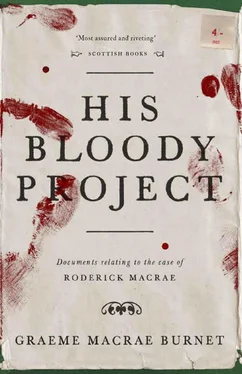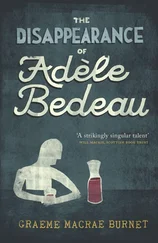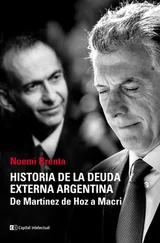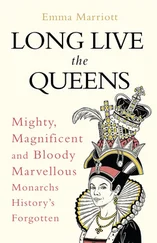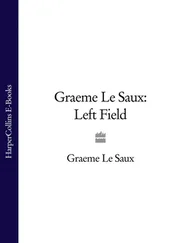‘When necessary.’
‘I see. And could you give an example of when you found it necessary to strike him?’
‘When he had disobeyed me or had caused some trouble.’
‘“Caused trouble” — so your son sometimes caused trouble? Could you describe to the court an occasion when your son caused trouble and obliged you to beat him?’
Mr Macrae did not reply.
‘We have heard testimony about an incident in which your son killed a sheep belonging to Mr Mackenzie. Did you strike your son on this occasion?’
‘I did.’
‘Can you tell the court why you did so?’
‘He had caused trouble.’
‘I see. And did you strike him once or repeatedly?’
‘Repeatedly.’
‘And with what did you strike him?’
‘With my stick,’ which he helpfully held up.
‘And on which part or parts of his body?’
‘On his back.’
‘You struck him repeatedly on his back with your stick?’
‘Yes.’
‘And was this an isolated incident?’
Mr Macrae did not appear to understand this question.
‘Were there other occasions on which you had cause to beat your son?’
‘Some.’
‘And did you always beat him with your stick?’
‘Not always.’
‘Did you strike him with your fists?’
‘Yes.’
‘And, when you struck him with your fists, where would you strike him?’
‘Around the body.’
‘On his head and face?’
‘Likely there, too.’
‘And this was a frequent occurrence?’
The Lord Justice-Clerk here asked Mr Sinclair to be more precise in his question.
‘Did you beat your son on a daily basis, on a weekly basis, or less frequently than that?’
‘On a weekly basis.’
‘And you felt it necessary to do so?’
‘The boy needed disciplining.’
‘And did this discipline improve his behaviour?’
‘It did not.’
Mr Sinclair then examined the papers in front of him and, after some consultation with his assistant, declined to ask any further questions.
At this point, Mr Gifford requested that an alteration to the scheduled order of witnesses be made. The Lord Justice-Clerk made no objection and Allan Cruikshank was called.
Mr Gifford commenced his examination of the witness. ‘Please state your occupation, Mr Cruikshank.’
‘I am factor to Lord Middleton of Applecross.’
‘And the village of Culduie constitutes part of Lord Middleton’s estate?’
‘It does.’
‘And, as such, you are responsible for the management of that village?’
‘I am responsible for the management of the estate. I am not concerned with the day-to-day matters in the villages.’
‘These would be matters for the village constable, would they?’
‘Indeed.’
‘And in the case of Culduie, this was Mr Lachlan Mackenzie?’
‘That is correct. He acted as constable for Culduie, Camusterrach and Aird-Dubh.’
‘These being the neighbouring villages?’
‘Yes.’
‘So in his capacity as constable to these communities you would have cause to meet with Mr Mackenzie and discuss their administration?’
‘We did meet, but not frequently.’
‘Did you direct him on the details of how the villages should be managed?’
‘We discussed the running of the villages in general terms, but I did not concern myself with the minutiae.’
‘“General terms” being what?’
‘The general upkeep of the road and by-ways, ensuring that tenants did not fall into arrears in their rent, that sort of thing.’
‘And did you find Mr Mackenzie to be competent?’
‘Mr Mackenzie was unquestionably the best constable that has served the estate under my tenure.’
‘You had confidence in his abilities?’
‘Great confidence, yes.’
‘Now, do you recall an occasion towards the end of July this year when Mr John Macrae and his son — the prisoner here — visited you?’
‘I do.’
‘Before this meeting, did you know Mr Macrae?’
‘No.’
‘Are you often visited by tenants from the estate?’
‘I am not. It was most irregular.’
‘Why is that?’
‘If a tenant wishes to discuss some matter related to the management of their village they should do so with their constable.’
‘In this case, Mr Mackenzie?’
‘Correct.’
‘Did you express this view to Mr Macrae?’
‘I did.’
‘And how did he respond?’
‘He told me that Mr Mackenzie was the subject of his visit.’
‘Could you elaborate?’
‘It appeared there existed some ill feeling between the two men, or at least that Mr Macrae felt he had been ill-used by Mr Mackenzie.’
‘Did you ask Mr Macrae why he felt this way?’
‘I did. He related some trifling incidents, but I am afraid I cannot recall the details.’
‘Nevertheless, it appeared to you that, rightly or wrongly, Mr Macrae harboured some grievance towards Mr Mackenzie?’
‘It appeared so.’
‘And what action did you take?’
‘I did not take any action. It was a matter of no concern to me.’
‘Did you inform Mr Mackenzie of what had occurred?’
‘I cannot recall.’
‘Did you see Mr Mackenzie between this meeting and the time of his death?’
‘I did.’
‘When did you see him?’
‘I saw him on the day of the summer Gathering.’
‘This was when?’
‘I believe it was the 31st of July.’
‘You spoke to him that day?’
‘Yes. We drank an ale at the Inn in Applecross.’
‘I see. And can you recall if you mentioned this incident — the meeting with Mr Macrae and his son — to him?’
‘I believe I did.’
‘In what terms did you mention it?’
‘It was an amusing incident.’
‘Mr Mackenzie found it amusing?’
‘He appeared to.’
Mr Gifford then concluded his questioning. The defence had no questions for this witness.
Mr Macrae was then recalled and the evidence of the factor was put to him.
‘If, as you have testified, you felt no grievance towards the deceased,’ Mr Gifford enquired, ‘why did you feel the need to pay this visit to the factor and make these plaints against him?’
At this point, the occupants of the public gallery, some of whom, wrote Mr Murdoch, ‘must have keenly felt the humiliation which was to be heaped on the crofter’, were quite hushed. Mr Macrae’s eyes darted about the court-room as though seeking some assistance. The Lord Justice-Clerk found it necessary to prompt him to answer.
‘I wished only to know better the regulations under which we lived.’
‘And you did not feel that this was a question you could direct to the deceased?’
‘No.’
‘Why was that?’
After some moments of silence, he replied, ‘I was not on good terms with Mr Mackenzie.’
‘And you felt that he had acted in a vindictive manner towards you?’
Mr Macrae made no response.
Mr Gifford presumably feeling that he had made his point, moved on. ‘On Monday the 9th of August, the day before the murders took place, did you receive a letter?’
‘I did.’
‘Who was the letter from?’
‘From the factor.’
‘And what were the contents of the letter?’
‘It was a notice of eviction.’
‘You were to be put out of your house?’
‘Yes.’
‘How did you react to this letter?’
Mr Macrae made a vague gesture with the hand which was not gripping his stick.
Mr Gifford rephrased his question. ‘What did you propose to do about this notice?’
‘I did not propose to do anything.’
‘Did you intend to comply with the notice?’
Mr Macrae looked at the advocate for some moments.
Читать дальше
